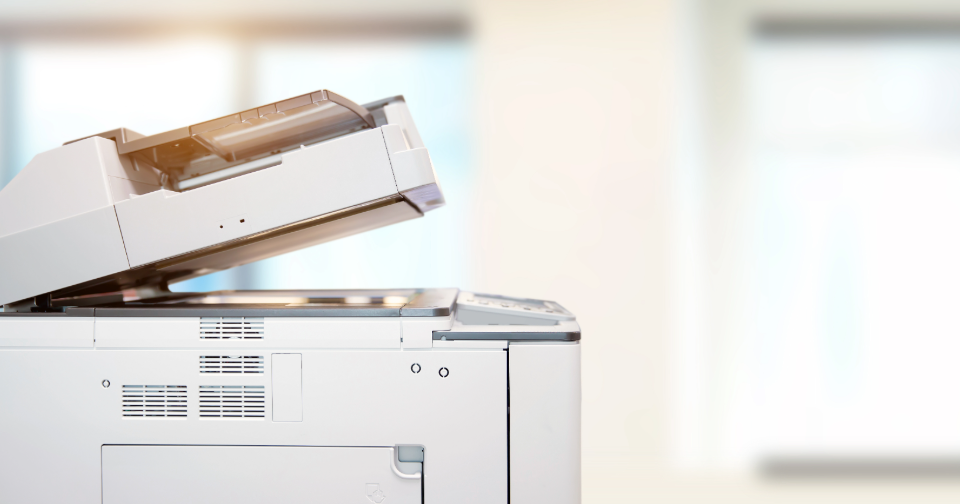One of the oldest known microbiome-based therapeutics, faecal microbiota transplantation, is again rising to prominence. FMT is the transfer of microorganisms from the faeces (poo) of healthy individuals into the guts of patients1. This has proved to be highly effective for treating recurrent Clostidioides difficile infection and has shown promise for many other conditions including infectious diseases, immune-mediated diseases, metabolic diseases and cancer2, 3.
However, some FMT procedures risk transferring infectious agents from donors to patients and divergent regulatory approaches in different countries make it especially challenging to commercialise FMT products. While clarity has increased in recent years, regulatory uncertainty persists.
At the EU level, FMT still occupies a bit of a regulatory grey area. FMT does not meet the EU requirements for a drug classification because of the wide variety of gut microbial composition between samples6. Neither does it fall within the scope of the EU Directive 2004/23, which is concerned with the quality and safety of human tissues and cells; despite its human origin, the human cells within the faecal matter do not constitute the active component4, 5.
It therefore falls to individual EU member states to decide how to regulate FMT. Italy and Belgium respectively regulate FMT as a tissue or cells under their respective national tissue and cells legislation, while France, Germany, Spain and Switzerland regulate FMT as a medicinal product (i.e. a drug)1, 4. However, the reality of what this designation means still differs from country to country. For instance, despite regulating FMT as a medicinal product, Germany only approves it as a treatment of last resort (known as an individueller Heilversuch).
Austria and Denmark have taken a looser regulatory approach, treating FMT as a more standard therapeutic option with less regulatory oversight. This allows for much broader use at the discretion of medical practitioners6. However, both countries apply stricter rules for FMT therapeutics that have undergone few processing steps. In Austria, when samples are minimally processed, for instance when faecal samples may just be filtered or even administered fresh (sorry to anyone who may be eating or drinking!), they are regulated as a therapeutic intervention and face greater regulatory barriers. Denmark also considers the extent of processing to be the key determinate, classifying FMT therapies as a tissue when minimally processed1.
Outside the EU, Australia also takes a nuanced approach. Products containing faecal micro-organisms that have been isolated and propagated are regulated as a ‘medicine’, which are considered to have a lower risk profile than a ‘cell or tissue based therapeutic good’ and therefore face fewer regulatory hurdles6, 7.
Isolating specific micro-organisms from faecal samples and propagating them limits this risk and allows governments to release the regulatory breaks. However, there is still much to learn about which specific micro-organisms can deliver favourable results, and so this approach risks eliminating helpful micro-organisms from the therapeutic1, 3.
The UK regulates FMT as a medicinal product, where it is recommended for the treatment of C. difficile infections under current national guidelines8, 9.
In the US, the FDA has reported six incidents of serious infections following FMT therapy and places companies developing microbiome therapies under heavy scrutiny10. The US and Canada respectively regulate FMT as a new biological agent and a new biological drug. Under these regulatory classifications, FMT is very tightly regulated, with its use being restricted to authorised clinical trials (and only those investigating its use in treating C. difficile infections). However, both countries have exceptions to allow FMT in instances of serious C. difficile infections where patients are not responding to standard therapies6, 11.
These diverging regulatory approaches in different jurisdictions can make developing microbiome therapies especially challenging. MaaT Pharma knows this well. Despite promising results in its European trials, their US phase 3 trials have been left in limbo since the FDA placed them on hold last year. In August of 2022, the FDA announced this hold will remain in place pending the resolution of new concerns cited by the agency12.
Others are progressing well. Following positive results in Phase 3 clinical trials, two microbiome therapeutics, both targeting recurrent C. difficile infection, are heading towards FDA approval. Either would represent the first microbiome therapeutic to gain that accreditation, representing a big win for Seres Therapeutics or Rebiotix-Ferring Pharmaceuticals 3.
It is little wonder that these companies, and many more, are braving this murky regulatory environment. The microbiome therapeutic market accounted for over $300 million globally in 2021 and is expected to expand tenfold in the next ten years, to $3.2 billion by 203213. The prize for success promises to be great.
References
- EU Innovation Network (EU-IN). (2022). Faecal Microbiota Transplantation. Retrieved from https://www.ema.europa.eu/en/documents/report/faecal-microbiota-transplantation-eu-horizon-scanning-report_en.pdf?utm_medium=email&_hsmi=216826780&_hsenc=p2ANqtz-8ynQ6q-nVm-CGBHnTwMxuivY6vTMYXOeaTT6Uycl3F5uAoJIFgSHJmyb72ZQU3pgUP8YSYPTV2s4GBbDt6ZswFSFLSPA&utm_content=216826780&utm_source=hs_email
- van Nood, E., Vrieze, A., Nieuwdorp, M., Fuentes, S., Zoetendal, E., & de Vos, W. et al. (2013). Duodenal Infusion of Donor Feces for Recurrent Clostridium difficile. New England Journal Of Medicine, 368(5), 407-415. https://doi.org/10.1056/nejmoa1205037
- Gosálbez, L. (2022). Fecal Microbiota Transplantation (FMT): Global Industry and Regulatory Overview. Microbiometimes.com. Retrieved from https://www.microbiometimes.com/fecal-microbiota-transplantation-fmt-global-industry-and-regulatory-overview/.
- Directive 2004/23/EC on setting standards of quality and safety for the donation, procurement, testing, processing, preservation, storage and distribution of human tissues and cells (2004). Retrieved from https://eur-lex.europa.eu/LexUriServ/LexUriServ.do?uri=OJ:L:2004:102:0048:0058:en:PDF
- de Stefano, M., Mazzanti, B., Vespasiano, F., Lombardini, L., & Cardillo, M. (2022). The Regulatory Approach for Faecal Microbiota Transplantation as Treatment for Clostridioides difficile Infection in Italy. Antibiotics, 11(4), 480. https://doi.org/10.3390/antibiotics11040480
- Merrick, B., Allen, L., Masirah M Zain, N., Forbes, B., Shawcross, D., & Goldenberg, S. (2020). Regulation, risk and safety of Faecal Microbiota Transplant. Infection Prevention In Practice, 2(3), 100069. https://doi.org/10.1016/j.infpip.2020.100069
- Australian Government Faecal Microbiota Transplant (FMT) product regulation. (2022). Retrieved from https://www.tga.gov.au/resources/publication/publications/faecal-microbiota-transplant-fmt-product-regulation.
- Microbiome Treatment Centre. University of Birmingham. (2021). Retrieved from https://www.birmingham.ac.uk/university/colleges/mds/facilities/advanced-therapies-facility/microbiome-treatment-centre.aspx.
- Mullish, B., Quraishi, M., Segal, J., McCune, V., Baxter, M., & Marsden, G. et al. (2018). The use of faecal microbiota transplant as treatment for recurrent or refractory Clostridium difficile infection and other potential indications: joint British Society of Gastroenterology (BSG) and Healthcare Infection Society (HIS) guidelines. Journal Of Hospital Infection, 100, S1-S31. https://doi.org/10.1016/j.jhin.2018.07.037
- S. Food and Drug Administration. (2020). Fecal Microbiota for Transplantation: Safety Alert - Risk of Serious Adverse Events Likely Due to Transmission of Pathogenic Organisms.
- Health Canada. (2015). Guidance Document: Fecal Microbiota Therapy Used in the Treatment of Clostridium difficile Infection Not Responsive to Standard Therapies.
- Armstrong, A. (2022). FDA declines to free MaaT's microbiome drug from clinical hold after a year. Fierce Biotech. Retrieved from https://www.fiercebiotech.com/biotech/fda-declines-free-maats-microbiome-drug-clinical-hold-after-year.
- The global microbiome therapeutics market which accounted for $306.3 million in 2021 is expected to reach $3,204 million by 2032, reporting a CAGR of 24.95% during the forecast period 2022-2032. Uk.finance.yahoo.com. (2022). From https://uk.finance.yahoo.com/news/global-microbiome-therapeutics-market-accounted-.
About the authors
This blog was co-authored by Isobel Fisher and Eliot Ward.
Isobel Fisher
Isobel is a trainee patent attorney in the life sciences team. She has a BSc in Biochemistry from Imperial College London. Her final year project involved comparing the genomic response of human and rats post burn to help understand the evolution of the burn response in humans.
Email: isobel.fisher@mewburn.com
Eliot is a highly valued partner at Mewburn Ellis and a key driver within the Life Sciences team. With a reputation for driving complex projects from inception to completion, he works with a diverse range of clients, from innovative startups to multinational corporations worldwide. Eliot handles a diverse client portfolio spanning the life sciences and MedTech sectors. A skilled patent prosecutor, Eliot also has wide experience of drafting patent applications on breakthrough technologies, as well as leading offensive and defensive opposition proceedings post-grant. Eliot is also experienced in handling Freedom to Operate projects and in performing due diligence, which have led to the successful completion of high value transactions and investment rounds.
Email: eliot.ward@mewburn.com


.png)
